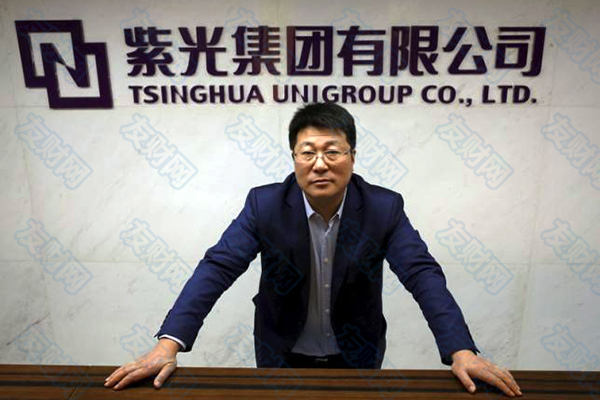Zhao Weiguo, chairman of Unigroup. [Photo/China Daily]
Chipmaker presses ahead with plans to boost global standing

The State-owned Unigroup had recently said it has set a goal to be among the top three chipmakers in the world, in the league of giants like Intel Corp, Qualcomm Inc and Samsung Electronics Co.
The Beijing-based company said on Friday it will invest NT$56.8 billion ($1.7 billion) in Siliconware Precision Industries Co Ltd and NT$11.97 billion in ChipMOS Technologies Inc for a 25 percent stake in each company.
Unigroup will become the largest shareholder of SPIL and the second-largest in ChipMOS, according to separate announcements. SPIL and ChipMOS are in chip packaging and testing sector, the final stages of chipmaking.
Zhao Weiguo, chairman of Unigroup, said the investment will boost cross-Straits cooperation in the semiconductor sector. "We will work closely with partners to explore the market on the Chinese mainland," Zhao said.
A release from ChipMOS said the investment will help the company expand in the fast-growing semiconductor market on the mainland.
SPIL said the majority of funds raised from the cooperation are expected to be used for investments in Taiwan, including hardware development and cultivation of local talent to sustain long-term development.
"SPIL will cooperate with leading foundry players to capture more market share in the advanced packaging and testing industry," it said.
In November, Zhao visited Taiwan and said he was willing to make investments in the island, subject to local regulations. Zhao's comment triggered debate among Taiwan chipmakers as some see Unigroup as a bridge to a gigantic market while others are worried that mainland investments would deprive local players' say over the industry.
Huang Leping, executive director of China technology and telecom research at Nomura Securities Co, said the investments will help the cash-rich Unigroup to build its global presence.
"Financially the investments make sense. Investing in companies like Siliconware and ChipMOS are more likely to yield profits, compared with investing in the Chinese mainland rivals," Huang said.
He said that on average, the price-earnings ratio of Chinese mainland chip firms are roughly five times higher than companies based in Taiwan, leaving Taiwan firms much larger room for profit growth.
"Including overseas supply chain companies to the Unigroup network will also help its major subsidiaries to grow faster," Huang said.
In 2013, Unigroup acquired Shanghai-based fabless semiconductor company Spreadtrum Communications Inc for about $1.8 billion. Spreadtrum was the key for Unigroup to enter mobile chipmaking market where the United States giant Qualcomm is the leader.
Earlier this year, the Chinese company pledged to spend 300 billion yuan in the next five years to become the world's third-largest chipmaker. Samsung of South Korea, Intel and Qualcomm of the US currently hold the top three positions in terms of turnover.
China, the world's biggest market for chipsets, is eagerly looking for a local semiconductor giant to lower import costs.
Ye Tianchun, director of the Institute of Microelectronics at the Chinese Academy of Sciences, said overseas mergers and acquisitions will play a key role in helping local companies gain market share.
"It is the fastest way to get technologies and human power needed to catch up with foreign industry leaders," Ye said.
Unigroup's advances come amid the government pledge to build a stronger, made-in-China chip industry. Chinese mainland spent more than $200 billion for importing chipsets in 2014, higher than the amount for oil imports during the same period, official data showed.
